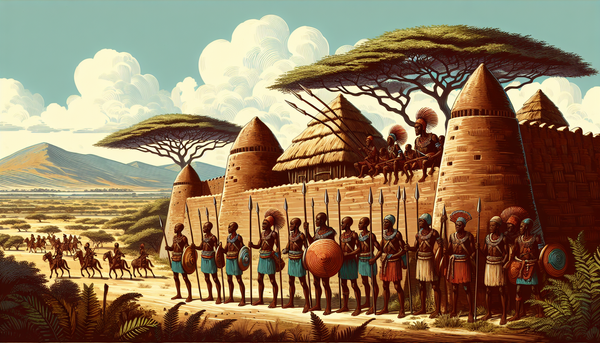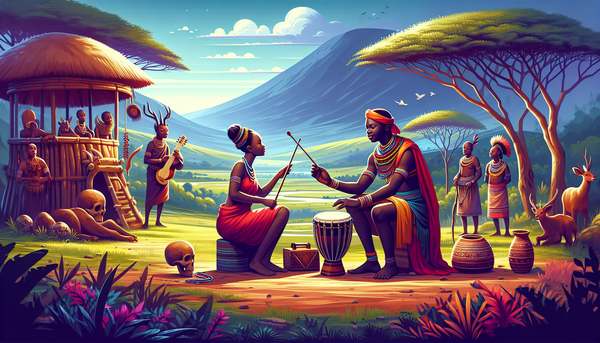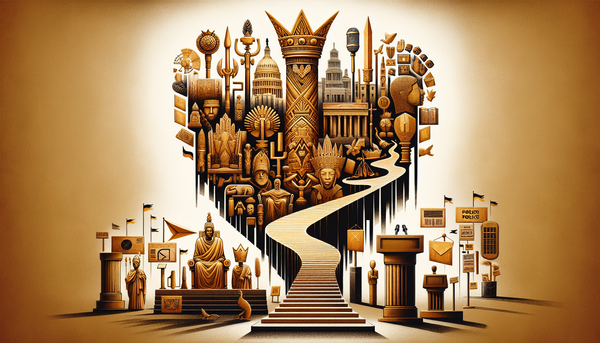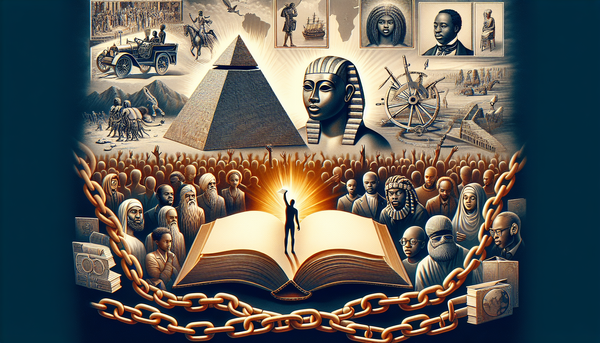Independence Movements Across Africa in the 20th Century
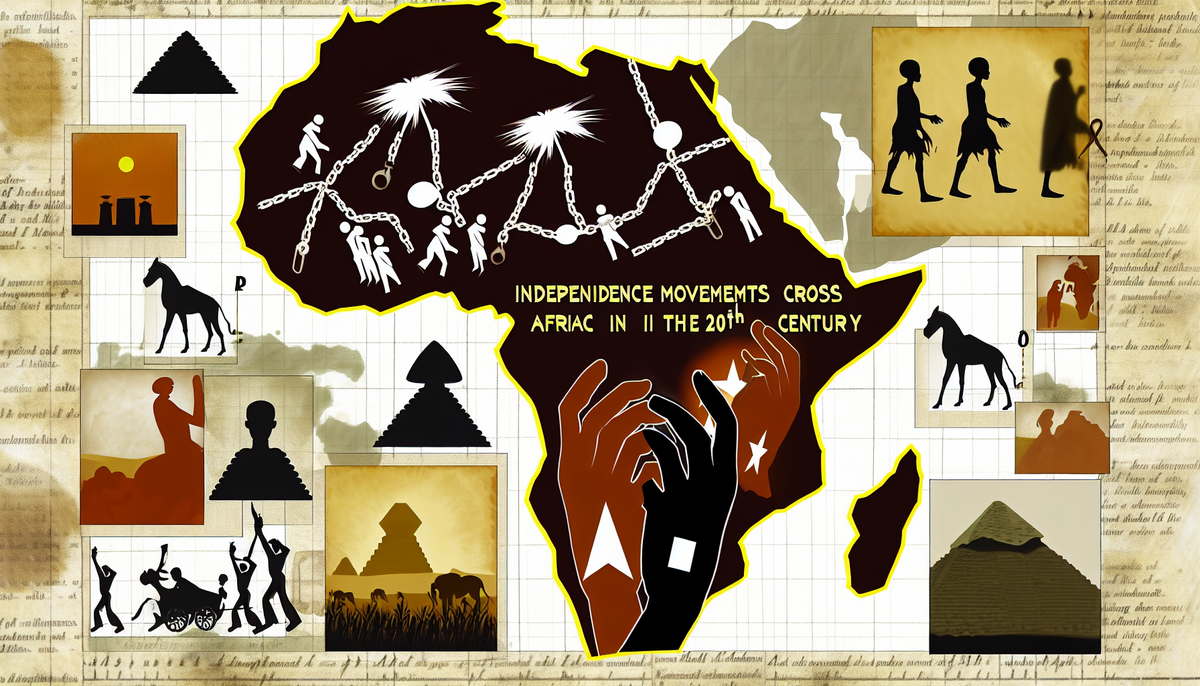
Introduction to 20th Century African Independence Movements
The 20th century marked a significant period of change and transformation for many African nations as they sought independence from colonial rule. This era was characterized by a series of movements and struggles that aimed to break free from the chains of European domination and establish self-governance. The desire for independence was fueled by a strong sense of nationalism and a drive to reclaim cultural, political, and economic autonomy.
Colonial powers such as Britain, France, Belgium, and Portugal had established their presence in Africa through exploitative and oppressive colonial systems that stripped away the rights and resources of indigenous populations. In response to these injustices, various African leaders and intellectuals emerged to mobilize their people and challenge colonial authority. These leaders played a key role in articulating the aspirations of their nations and coordinating efforts to resist colonial control.
The African independence movements of the 20th century were diverse and dynamic, characterized by a range of strategies and ideologies. Some movements employed non-violent resistance tactics inspired by figures like Mahatma Gandhi, while others embraced armed struggle as a means to achieve liberation. The struggle for independence was not without its sacrifices, as many activists faced imprisonment, exile, and even death in their pursuit of freedom.
As these movements gained momentum, they sparked a wave of decolonization across the continent, leading to the eventual dismantling of colonial empires in Africa. The legacy of these independence movements continues to shape the modern African landscape, serving as a powerful reminder of the resilience, determination, and spirit of a people united in their quest for self-determination.
Colonial Influence and the Catalysts for Change
The colonial influence in Africa during the 20th century was characterized by exploitation, oppression, and the imposition of foreign domination over indigenous populations. European powers viewed Africa as a source of raw materials, cheap labor, and strategic territories to expand their empires. Colonial administrations implemented policies that prioritized the interests of the colonizers while subjugating and marginalizing the African people.
One of the key catalysts for change in Africa during this period was the rise of nationalism among indigenous populations. African intellectuals, activists, and leaders began to challenge the legitimacy of colonial rule and advocate for self-determination and independence. The emergence of pan-African movements, such as the Pan-African Congress and the Negritude movement, provided a platform for Africans to unite in their struggle against colonialism and assert their cultural and political identities.
Economic exploitation was another significant factor that fueled resistance against colonial powers. Africans were subjected to forced labor, land expropriation, and discriminatory economic policies that enriched the colonizers at the expense of the local populations. The exploitation of Africa's natural resources, such as minerals, timber, and agricultural products, further heightened tensions and grievances among the African people.
The impact of World War I and World War II also played a role in catalyzing change in Africa. The participation of African soldiers in these global conflicts raised questions about the contradiction of fighting for colonial powers while being denied basic rights and freedoms in their own countries. These experiences fostered a sense of disillusionment and a questioning of the legitimacy of colonial rule, laying the groundwork for future independence movements across the continent.
Prominent Leaders and Their Impact
During the 20th century, Africa witnessed the emergence of visionary leaders who played pivotal roles in the struggle for independence and the shaping of post-colonial nations. These leaders exhibited courage, charisma, and a deep commitment to the liberation of their people, inspiring generations to join the fight against colonial oppression.
One of the most iconic figures of this era was Kwame Nkrumah, the first President of Ghana and a founding member of the Organization of African Unity. Nkrumah's vision of Pan-African unity and his advocacy for African self-reliance resonated across the continent, earning him the title of the "Father of African Nationalism."
Another influential leader was Jomo Kenyatta, the first President of Kenya, who led the country to independence from British colonial rule. Kenyatta emphasized the importance of reconciliation and nation-building, laying the foundation for a unified and democratic Kenya.
In South Africa, Nelson Mandela emerged as a symbol of resistance against apartheid, enduring decades of imprisonment to fight for racial equality and democracy. Mandela's dedication to reconciliation and his message of forgiveness made him a global icon of peace and justice.
Patrice Lumumba, the first Prime Minister of the Democratic Republic of the Congo, championed the economic and political independence of his country from Belgian colonial rule. Lumumba's tragic assassination underscored the challenges faced by African leaders in navigating the post-independence landscape and combating internal and external threats to sovereignty.
These leaders, among many others, left a lasting legacy on their nations and the continent, inspiring future generations to uphold the values of freedom, equality, and self-determination. Their impact continues to reverberate in contemporary Africa, shaping the political landscape and fostering a culture of leadership rooted in the ideals of liberation and unity.
Key Events that Shaped the Struggle
Several pivotal events in the 20th century played a significant role in shaping the struggle for independence across Africa. These events marked turning points in the fight against colonial rule and laid the groundwork for the establishment of sovereign nations on the continent.
The 1947 Pan-African Congress, held in Manchester, United Kingdom, brought together activists and leaders from across Africa and the diaspora to discuss strategies for challenging colonialism and promoting African unity. This gathering set the stage for future collaboration and solidarity among African nations in their quest for independence.
The Mau Mau Uprising in Kenya, which began in the 1950s, was a key moment of resistance against British colonial rule. The armed struggle led by the Mau Mau insurgents highlighted the brutality of colonial repression and brought international attention to the plight of the Kenyan people.
The Soweto Uprising in South Africa in 1976 marked a watershed moment in the anti-apartheid movement. The protests, led by students against the compulsory use of Afrikaans in schools, escalated into a widespread uprising against the apartheid regime, galvanizing global condemnation and solidarity for the struggle for racial equality.
The Algerian War of Independence, which lasted from 1954 to 1962, was a protracted conflict between Algerian nationalists and French colonial forces. The Algerian people's tenacious resistance and the international support for their cause ultimately led to the independence of Algeria and inspired liberation movements across Africa.
These key events, among many others, underscore the complex and multifaceted nature of the struggle for independence in Africa, highlighting the resilience, sacrifices, and determination of the African people in their pursuit of freedom and self-determination.
International Support for Independence
The quest for independence in Africa during the 20th century garnered significant international support from various actors, including governments, organizations, and individuals around the world. This solidarity played a crucial role in amplifying the voices of African liberation movements, raising awareness of the injustices of colonialism, and pressuring colonial powers to grant independence to African nations.
The United Nations, founded in 1945 with a commitment to promoting peace, security, and human rights, became a key platform for advocating for decolonization in Africa. The UN General Assembly passed numerous resolutions calling for an end to colonial rule and supporting the right of self-determination for colonized peoples, providing a global stage for African leaders to make their case for independence.
Non-governmental organizations, such as the Anti-Apartheid Movement and the American Committee on Africa, mobilized grassroots support and lobbied governments to impose economic sanctions and diplomatic pressure on apartheid regimes in countries like South Africa, Namibia, and Zimbabwe. These efforts helped to isolate and weaken colonial powers that perpetuated racial discrimination and oppression in Africa.
Several countries, including the Soviet Union, China, and India, offered political, military, and financial assistance to African liberation movements, bolstering their capacity to resist colonial forces and advance their struggles for independence. The Bandung Conference in 1955, which brought together newly independent Asian and African nations, fostered solidarity and cooperation among developing countries in their common pursuit of self-determination and sovereignty.
The international support for independence in Africa reflected a broader movement for justice, equality, and human rights on a global scale, demonstrating the interconnectedness of struggles against oppression and the power of collective action in achieving liberation and self-determination for all peoples.
Challenges Faced by Movements
The African independence movements of the 20th century encountered numerous challenges as they sought to break free from colonial rule and establish sovereign nations. These movements were met with opposition, repression, and complex internal and external factors that tested their resilience and determination.
One of the primary challenges faced by independence movements was the brutal repression and violence unleashed by colonial powers to suppress dissent and maintain control. Activists and leaders were often subjected to arrests, torture, and extrajudicial killings, disrupting the organization and momentum of liberation movements.
Internal divisions and rivalries within some independence movements also posed significant obstacles to achieving unity and common goals. Ideological differences, personal ambitions, and ethnic tensions sometimes undermined the cohesion and effectiveness of resistance efforts, leading to fragmentation and internal conflicts.
Economic barriers, including limited access to resources and widespread poverty, hindered the ability of independence movements to mobilize support, provide for their fighters, and sustain their campaigns against colonial forces. The economic exploitation and underdevelopment perpetuated by colonial powers further compounded the challenges faced by liberation movements.
Geopolitical factors, such as Cold War rivalries and the strategic interests of superpowers, complicated the struggle for independence in Africa. The involvement of external actors in supporting or opposing liberation movements often exacerbated conflicts and contributed to the prolongation of colonial rule in certain regions.
Despite these formidable challenges, African independence movements demonstrated remarkable resilience, adaptability, and solidarity in the face of adversity. The legacy of their struggle continues to inspire future generations to confront injustice, uphold the values of freedom and self-determination, and strive for a more just and equitable world.
Legacy and Effects on Modern Africa
The struggles for independence in Africa during the 20th century have left a profound and enduring legacy that continues to shape the continent's political, social, and economic landscape in the modern era. The achievement of independence marked a pivotal moment in African history, signaling the rejection of colonial oppression and the assertion of self-determination by African nations.
The legacy of African independence movements is characterized by a deep sense of national pride, cultural identity, and unity among African people. The fight against colonialism forged a collective memory of resilience, courage, and sacrifice that inspires a spirit of solidarity and commitment to building a better future for all Africans.
Independence movements also laid the foundation for the establishment of democratic governance systems in many African countries, with the adoption of constitutions, electoral processes, and institutions that uphold the principles of rule of law and respect for human rights. While challenges persist in consolidating democratic norms and practices, the legacy of independence continues to guide efforts toward promoting accountable and inclusive governance across the continent.
Economically, the struggles for independence in Africa led to a reevaluation of resource exploitation and economic policies that prioritized the interests of foreign powers over the needs of African populations. The call for economic independence and self-reliance remains a central theme in modern Africa, as countries seek to harness their natural resources, promote sustainable development, and address persistent inequalities and poverty.
In conclusion, the legacy of African independence movements serves as a powerful reminder of the resilience, determination, and aspirations of the African people to chart their own destinies and contribute to a more prosperous, peaceful, and equitable future for the continent.
